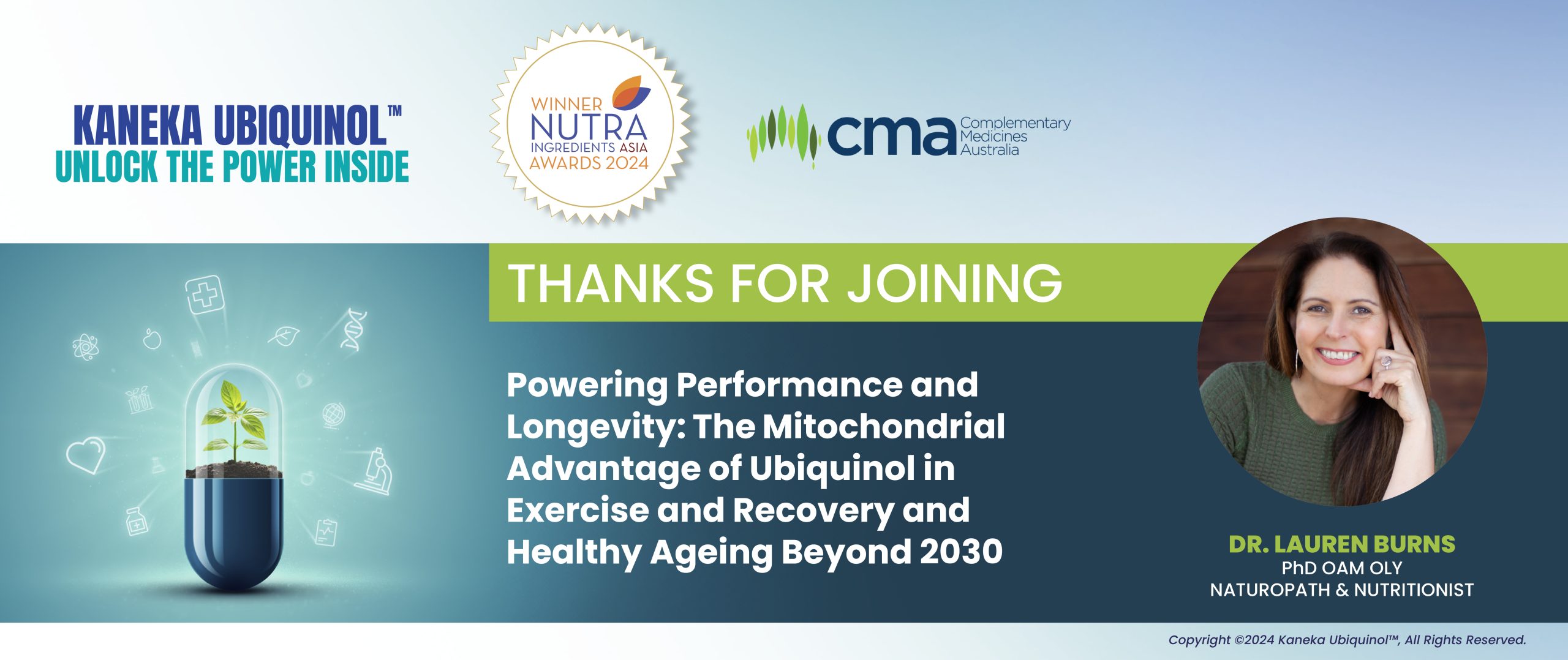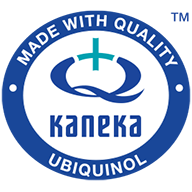
Ubiquinol Health Benefits
Feb 2021Recent Article
Ubiquinol, the active form of coenzyme q10 (coq10), is a fat-soluble antioxidant found naturally in the body.[1] After age 30, our natural Ubiquinol levels begin to decline as part of the natural aging process.[2] Furthermore, physical over-exertion and expending a lot of energy may also cause our natural ubiquinol levels to decline over time.[3]
Ubiquinol Health Benefits Include:
Supporting Energy Production Levels
Have you been feeling low on energy lately? Ubiquinol may help support your energy production levels.
A small part of the human cell, called the mitochondria, is home for the synthesis of Adenosine Triphosphate (ATP).[4] ATP is one of the primary substances used for the production of energy.4 Ubiquinol plays an important role in supporting the synthesis of ATP and supporting the production of energy in the body’s cells.4
Supporting Cardiovascular Health
As Ubiquinol supports cellular energy production, it also helps support the health of your major organs that need a lot of energy, like your heart.1 Ubiquinol, as an antioxidant, plays an important role in assisting in protecting the mitochondrial membrane from disruption by free radicals and oxidative stress.1
Supporting Sperm Motility and Morphology
Issues surrounding fertility can be challenging and disheartening for both men and women. Ubiquinol, as the active form of coq10, also supports male fertility, specifically supporting sperm motility and morphology.[5]
Sperm motility refers to the “movement of sperm” and how fast it moves.[6] Sperm morphology refers to the shape and size of sperm.6 Ubiquinol helps support healthy sperm motility and morphology in healthy adult men.5
Helping Relieve the Effects of Oxidative Stress and Free Radicals
It is well known that long-term stress may have an impact on your health and wellbeing. Long-term oxidative stress may have an effect on the natural aging process and may also disrupt bodily tissues such as lipids and proteins.[7]
Oxidative stress occurs when there may be an imbalance in your body between free radicals and antioxidants. Free radicals are molecules with an unpaired electron, which may make them unstable and reactive. Antioxidants, like Ubiquinol, may help relieve the effects of oxidative stress by using their spare electrons to help stabilise the free radicals.
Supporting Healthy Cholesterol Levels in Healthy Adults
Ubiquinol, as a fat soluble antioxidant, also helps support healthy cholesterol levels in healthy adults.1
Cholesterol is a fat-like molecule that is a component of all cells in our body.[8] It is also involved in many metabolic processes.8 There is a misconception that cholesterol is divided into bad LDL and good HDL.8 The reality is that cholesterol is typically transported around the body by various types of proteins.8
Research shows that there might be a connection between healthy levels of cholesterol in healthy adults and optimal levels of ubiquinol.1
Seek advice from a healthcare practitioner to determine if supplementation is right for you. Always read the label.
[1] Saini, R. (2011). Coenzyme Q10: The essential nutrient. J Pharm Bioallied Sci, 3(3), 466-467. < http://www.peirsoncenter.com/uploads/6/0/5/5/6055321/coenzyme_q10__the_essential_nutrient.pdf >
[2] Linnane, A. W., Zhang, C., Yarovaya, N., Kopsidas, G., Kovalenko, S., Papakostopoulos, P., … & Richardson, M. (2002). Human aging and global function of coenzyme Q10. Annals of the New York Academy of Sciences, 959(1), 396-411. < https://nyaspubs.onlinelibrary.wiley.com/doi/full/10.1111/j.1749-6632.2002.tb02110.x >
[3] Cooke, M., Iosia, M., Buford, T., Shelmadine, B., Hudson, G., Kerksick, C., … & Kreider, R. (2008). Effects of acute and 14-day coenzyme Q10 supplementation on exercise performance in both trained and untrained individuals. Journal of the International Society of Sports Nutrition, 5(1), 1-14. < https://link.springer.com/article/10.1186/1550-2783-5-8 >
[4] Mendelsohn, B. A., Bennett, N. K., Darch, M. A., Yu, K., Nguyen, M. K., Pucciarelli, D., … & Nakamura, K. (2018). A high-throughput screen of real-time ATP levels in individual cells reveals mechanisms of energy failure. PLoS biology, 16(8), e2004624. < https://journals.plos.org/plosbiology/article?id=10.1371/journal.pbio.2004624 >
[5] Alahmar, A. T., Calogero, A. E., Sengupta, P., & Dutta, S. (2020). Coenzyme Q10 improves sperm parameters, oxidative stress markers and sperm DNA fragmentation in infertile patients with idiopathic oligoasthenozoospermia. The world journal of men’s health, 38. < https://wjmh.org/search.php?where=aview&id=10.5534/wjmh.190145&code=2074WJMH&vmode=FULL >
[6] Hauser, R., Yogev, L., Botchan, A., Lessing, J. B., Paz, G., & Yavetz, H. (2001). Intrauterine insemination in male factor subfertility: significance of sperm motility and morphology assessed by strict criteria. Andrologia, 33(1), 13-17. < https://onlinelibrary.wiley.com/doi/full/10.1046/j.1439-0272.2001.00404.x >
[7] Kuhn, M. A. (2003). Oxygen Free Radicals and Antioxidants: An overview of how antioxidants protect the body from disease. AJN The American Journal of Nursing, 103(4), 58-62. < https://journals.lww.com/ajnonline/Fulltext/ >
[8] Steinberg, D., Parthasarathy, S., Carew, T. E., Khoo, J. C., & Witztum, J. L. (1989). Beyond cholesterol. New England Journal of Medicine, 320(14), 915-924. < https://www.nejm.org/doi/pdf/10.1056/NEJM198904063201407 >
You can share this by:
Keep up-to-date with Ubiquinol News
Ubiquinol Headlines

Retail Pharmacy: Healthy Ageing in the Spotlight
Apr 2025Category: Ageing, Antioxidants, APP, Conference, Conferences, Endurance, Health, Health Industry, healthy ageing, Immunity, In The News, Mitochondrial health, Nutrition, Online, Stress, Ubiquinol, Vitamins, wellnessRead More
Retail Pharmacy: The Impact of Loneliness on Heart Health
Apr 2025Category: cardiovascular health, dr ross walker, Heart, In The News, Mitochondrial health, Online, UbiquinolRead More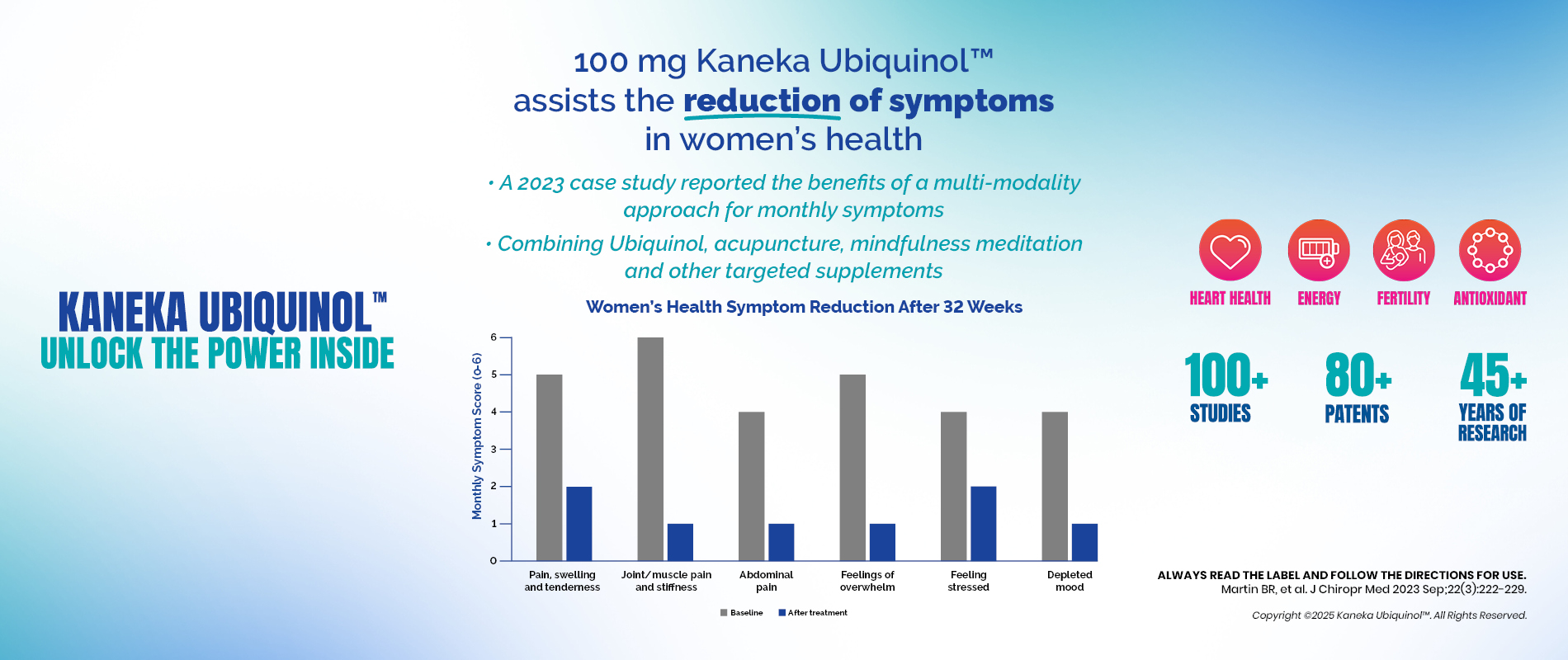
Ubiquinol for Women’s Health
Apr 2025Category: Ageing, Antioxidants, Fertility, Kaneka, Mitochondrial health, Ubiquinol, wellness, Women's HealthRead More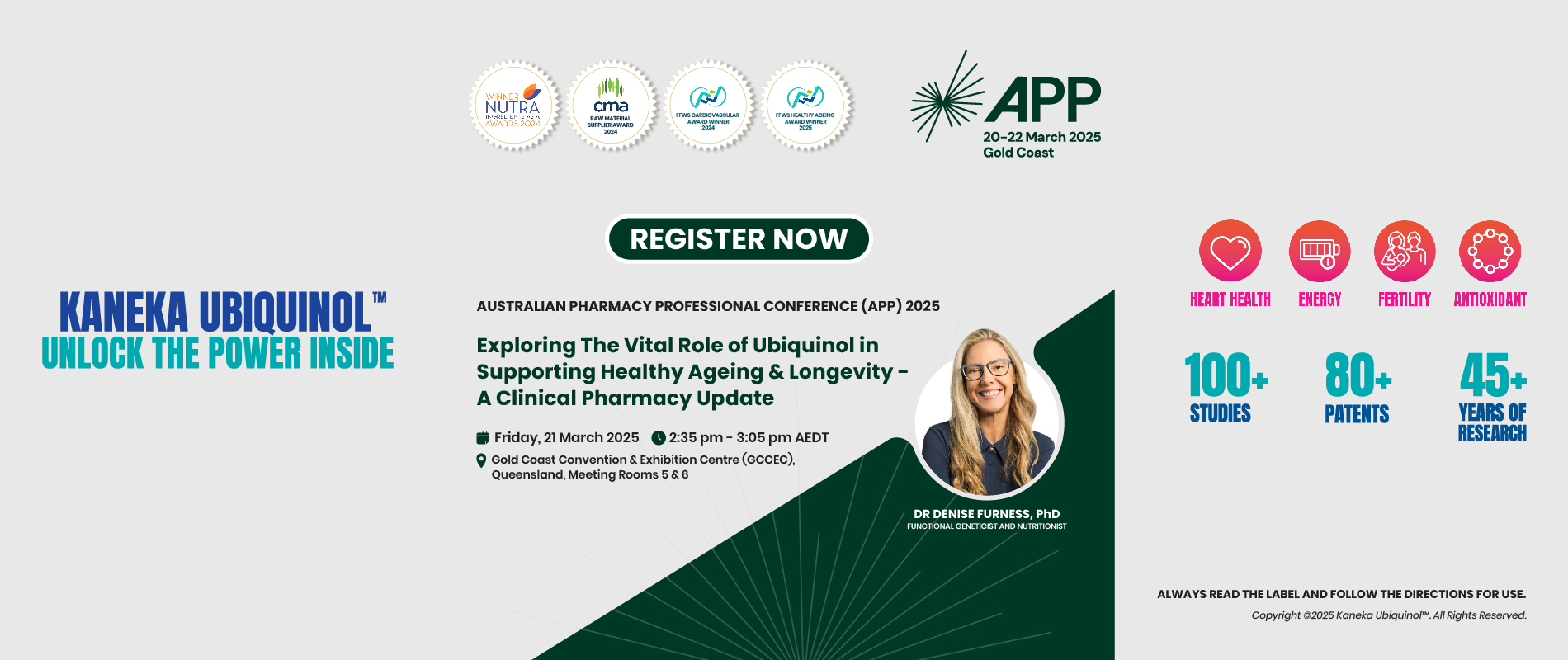
Kaneka Ubiquinol™ at APP 2025: Advancing Healthy Ageing & Longevity
Mar 2025Category: Ageing, Antioxidants, APP, Conference, Conferences, Energy, Fatigue, Health, Health Industry, healthy ageing, Kaneka, Mitochondrial health, Nutrition, UbiquinolRead More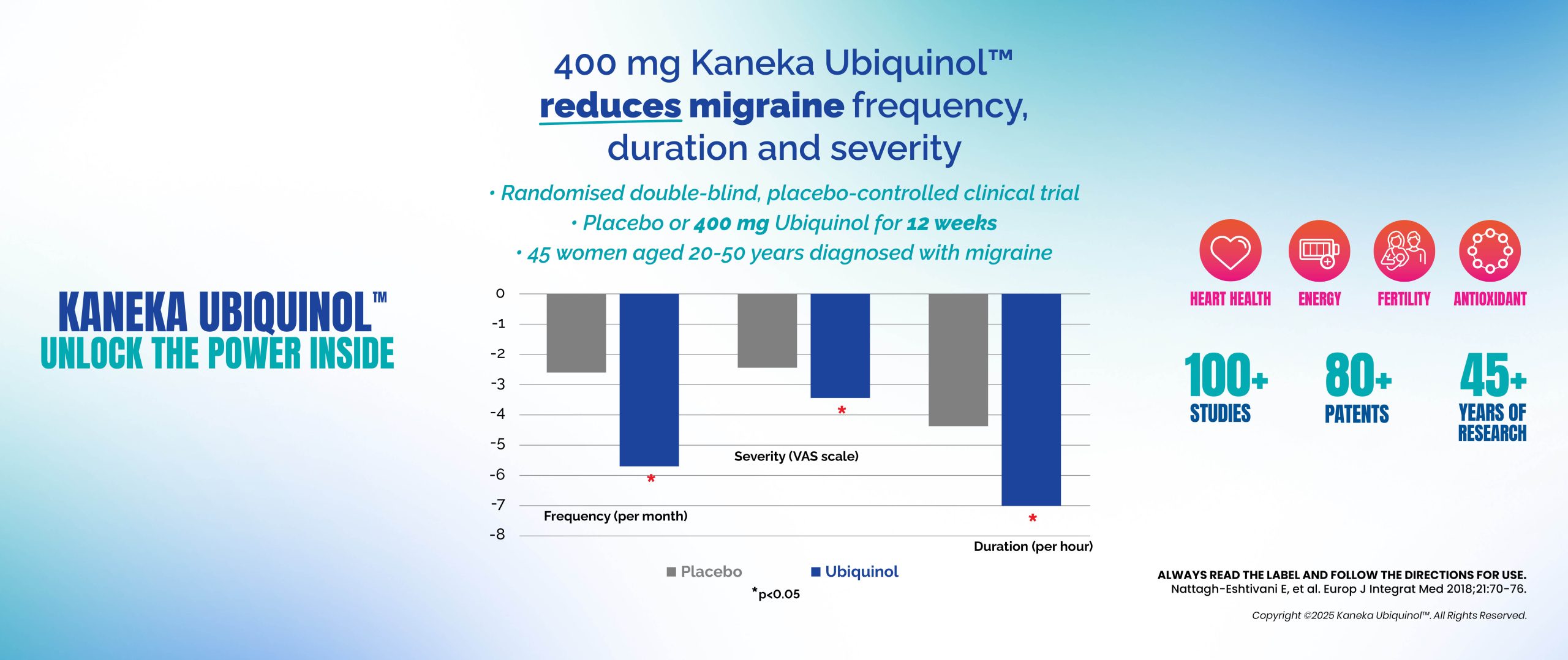
Ubiquinol: Supporting Migraine Relief Through Cellular Energy
Jan 2025Category: Antioxidants, complementary medicine, Energy, Fatigue, Health, Health Industry, healthy ageing, Kaneka, Mitochondrial health, Nutrition, Stress, Ubiquinol, Vitamins, wellnessRead More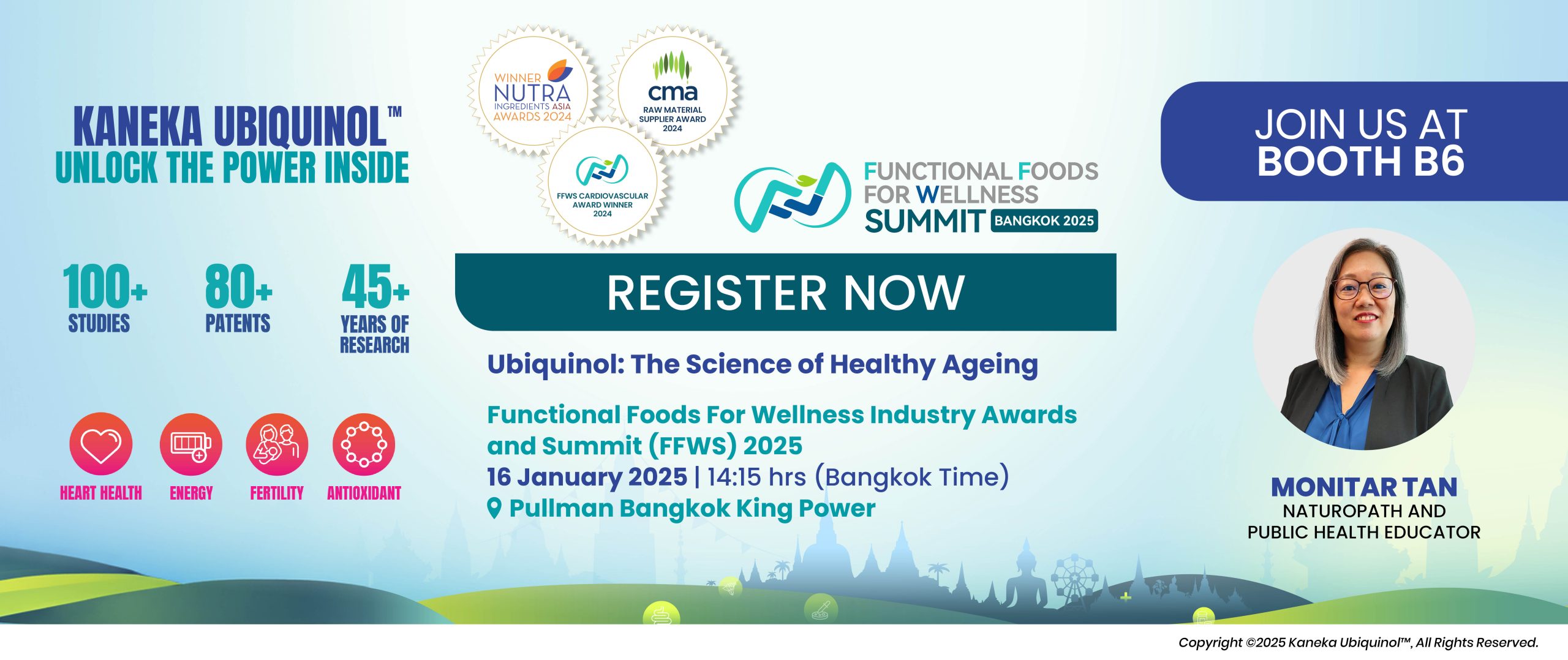
Kaneka Ubiquinol™ at Functional Foods for Wellness Industry Awards and Summit, #FFWS2025
Jan 2025Category: Ageing, Antioxidants, Awards, cardiovascular health, Conference, Conferences, Energy, Fatigue, FFWS2025, Health, Health Industry, healthy ageing, Kaneka, Menopause, Mitochondrial health, Nutrition, Ubiquinol, VitaminsRead More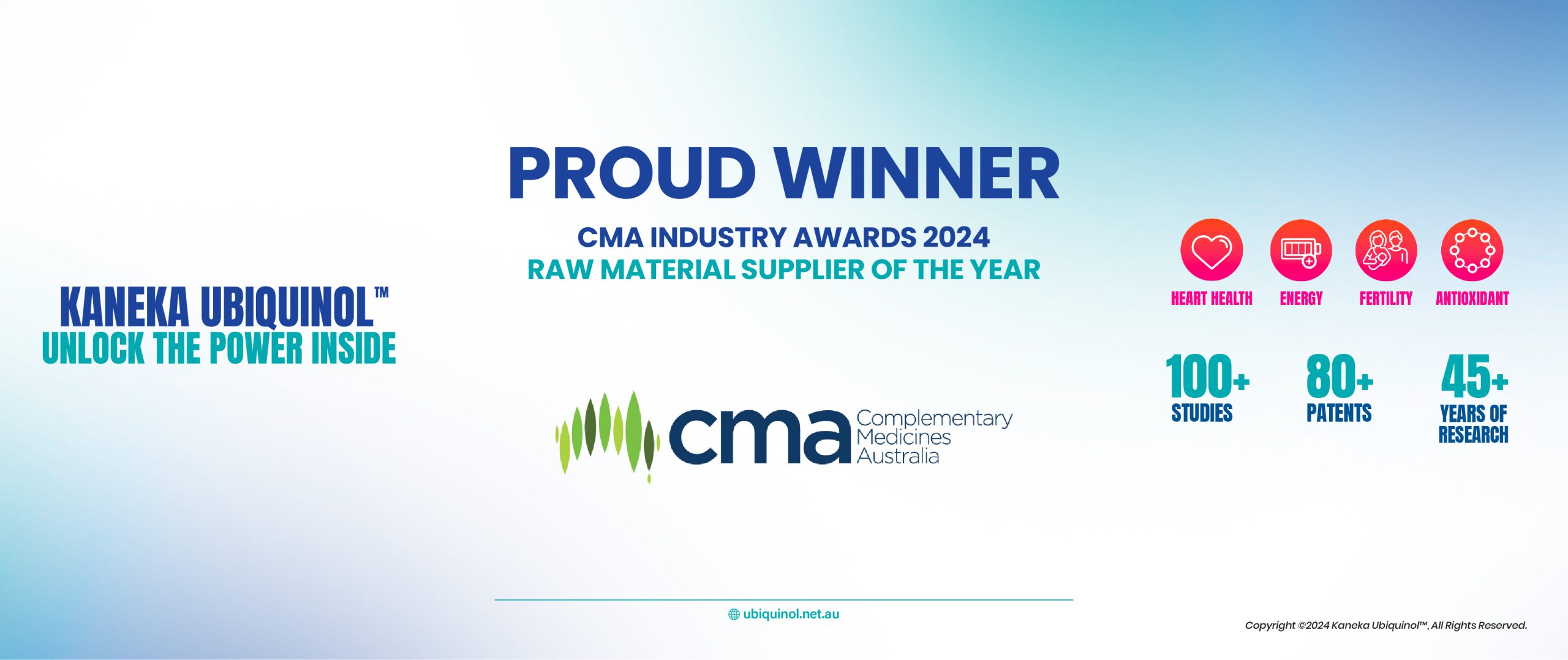
Kaneka Ubiquinol Wins Prestigious Complementary Medicines Raw Material Supplier of the Year Award 2024
Dec 2024Category: Ageing, Awards, cardiovascular health, complementary medicine, Conference, Conferences, Endurance, Energy, Fatigue, Fertility, Fitness, Health, Health Industry, healthy ageing, Heart, Immunity, In The News, Kaneka, Lungs, Memory, Mitochondrial health, Nutrition, Online, Stress, Ubiquinol, Vitamins, wellnessRead More